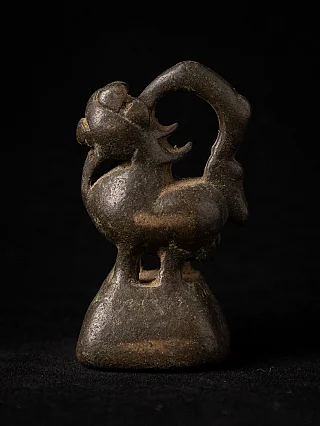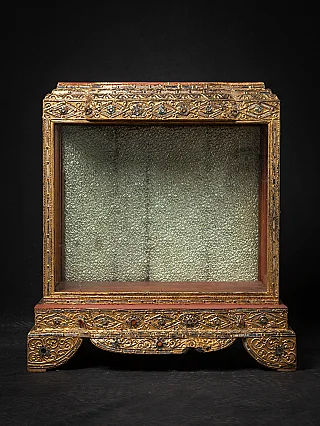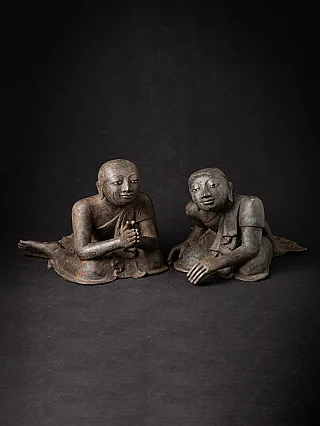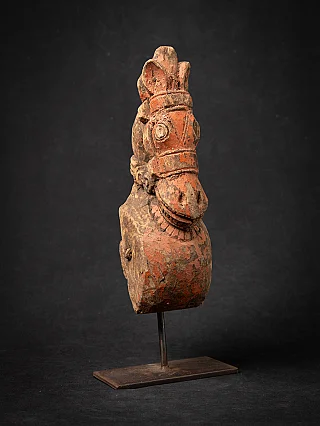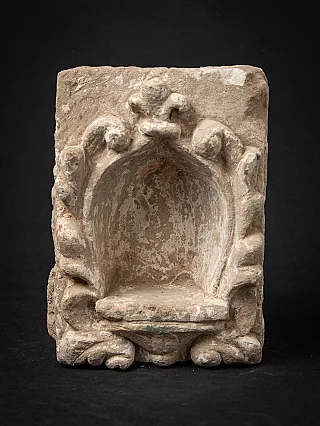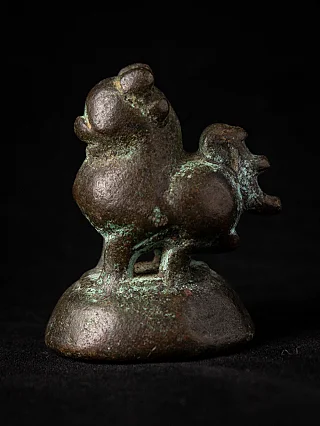Sanchi - Great Stupa
Author : Peter Vredeveld

The Great Stupa at Sanchi is the oldest Buddhist stone structure in India.
Sanchi is one of few cities in India that still protects a significant number of monasteries, stupas, and stone books that illustrate the teachings of Buddha. Sanchi is situated in the Raisen District in Madhya Pradesh, India, approximately 9 km from the ancient town of Vidisha. Sanchi is quite popular because of its numerous ruins of Stupas, temples, and monasteries. But "The Great Stupa" is the main attraction of Sanchi and is believed to be the oldest stone structure in India. This Stupa was initially authorized by Emperor Ashoka the Great in the 3rd Century BCE.
Sanchi is the oldest Buddhist sanctuary in India. Though Lord Buddha never visited Sanchi in his lifetime, Sanchi's importance is still equal to some critical Buddhist pilgrimage sites. Sanchi is believed to cover the entire range of Indian Buddhism, from the 3rd Century BCE to the 12th Century BCE, providing a platform for an educative study of ancient Buddhist art and literature.
History
• Maurya Period
The principal monument of Sanchi, "The Great Stupa" or Stupa 1, was constructed under the commission of Mauryan Emperor Ashoka the Great in around the 3rd Century BCE. Around the same time, the Ashoka Pillar, made of finely polished sandstone, was also erected.
• Shunga Period
It is presumed that The Great Stupa was vandalized during this period under the rule of Shunga Emperor Pushyamitra Shunga. It is also said that the son of Pushyamitra, Agnimitra Shunga, was ordered to rebuild the Stupa. The Stupa was reconstructed twice the original size. The Stupa was believed to symbolize Dharma (The Wheel of Law). During the later rule of the Shunga Dynasty, the second and third Stupas were built.
• Satavahana Period
In the era of the Satavahana Dynasty, intricate gateways and ornate fences were constructed. These commissioned gateways featured elaborate narrative depictions, with intricately carved structures portraying the figure of Lord Buddha beneath the Bodhi Tree, symbolizing the moment of Enlightenment. Carvings depicting various events from the life of Lord Buddha adorned these structures.
• Gupta Period
Various other temples and additional stupas were built in the Gupta Period. Around the 12th Century, Temple 17 was built and is believed to be one of the earliest Buddhist temples. Temple 45 was the last Buddhist temple ever built in the mid-9th Century.
Important Features of Sanchi

Sanchi is quite famous for its numerous Stupas and monasteries built during ancient Buddhism, which still exist in the hills of Sanchi. Around three stupas, several temples, and around 50 monuments remain in Sanchi; therefore, monuments in Sanchi have been listed on the UNESCO World Heritage Sites list in 1989. Some of these monuments of Sanchi are described below.
- The Great Stupa (Stupa 1)
The Great Stupa at Sanchi is one of its features since it is believed to be the oldest Buddhist stone structure in India, which was built by Mauryan Emperor Ashoka the Great in the 3rd Century BCE. The present Stupa is twice the original size of the Stupa built in the 3rd Century. The Stupa is 16m in height and 36m in diameter for the pedestal. The nucleus of the Stupa is a simple hemispherical brick structure said to be built on the relics of Lord Buddha. It was noted that the construction of this Stupa was overseen by Ashoka's wife, Queen Devi.
Four elaborately carved toranas/ornamental gateways were built in the 1st Century BCE.
- Stupa 2 and Stupa 3
Stupa 2 is situated on the hillside about 320m west of the Great Stupa, whereas Stupa 3 lies 60m north. Both Stupa was constructed around the 1st – 2nd Century BCE. The most beautiful and intriguing aspect of Stupa 2 is the collection of reliefs and medallions carved on Vedic posts. Only the south gateway (toranas) out of 4 toranas is present today.
- Temples and Monasteries
Sanchi is also famous for stupas, temples, and monasteries. Temple 17 is a typical stone temple built during the Gupta dynasty. Temple 18, much larger than Temple 17, was also built in Sanchi, and most parts of Temple 18 are lost.
Around 51 monasteries are built on the hill of Sanchi, and one of the monasteries, Vihara, is located 7m west of the Great Stupa.
Share this page




















